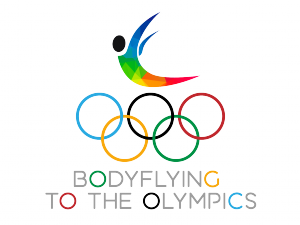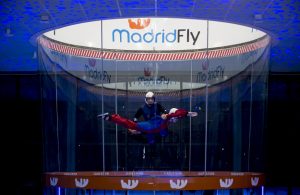
Dynamic Freefly – The track
Dynamic track is a virtual 3D slalom track set up inside the wind tunnel. The space is basically split up by a plane and an axis. It is important that these partitions may not be visible inside, but their positions are marked by signs on the glass. The plane is a vertical plane generally parallel to the door that divides the space into two equal parts, thus, it passes through the centre of the tunnel. It is marked by two clearly visible vertical lines placed on the glass, where the plane intersects the glass. The plane reaches up to the top of the wind tunnel.
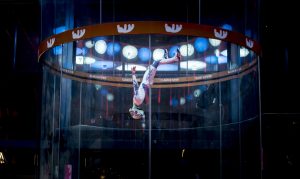
Dynamic Freefly – Basic movements
The essence of dynamic flying is that contestants are continuously moving, and never stop in the wind tunnel. In order to achieve this, horizontal and vertical rounds, and predetermined directions of various shapes need to be flown. For diving in the horizontal plane, the so called Carving movement needs to be applied at all times. Watched from the outside, carving looks as if the diver was flying around constantly in the tunnel, in reality, however, it is the combination of a constant side-slip, forward slide and rotation.
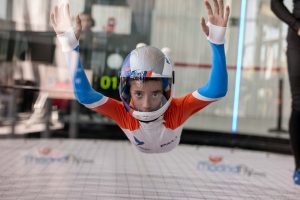
Dynamic Freefly – Dive pool lines
Dynamic freeflying is composed of three types of movements: lines, layouts and moves. All three may be performed five different ways, the actual one is to be chosen by drawing lots among contestants. The assigned series must be repeated four times, then the contestant must leave the tunnel. Scoring is based on the duration of the performance of the task. The draw for the contest always starts with a LINES movement.
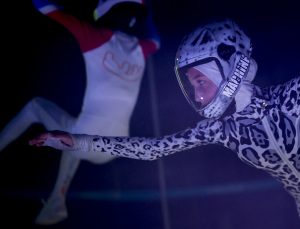
Dynamic Freefly – Dive pool layout
After finishing the snake comes “layout” movement, which is practically a vertical circle around the horizontal axis at the height of two meters. While learning snake moves, we emphasized the importance of a marked ascent during the final half-round. The reason is to avoid the need to start the layout movement with a vertical ascent, and instead to be at the height of the flight above the axis at the start. Layout always ends in the same position in which it was started, and is always composed of two full rounds.
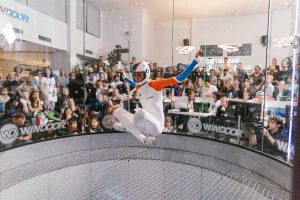
Dynamic Freefly – Dive pool moves
Having finished the layout, there comes the movement called “moves”. This is the first time that the contestants are separated and fly on different tracks, then at the end return to their starting position, from where they can start the “snake” again using the momentum gathered. Considering the track to be flown, there are two types of “moves”: circles and shuffler. In both versions the tracks are separate.

